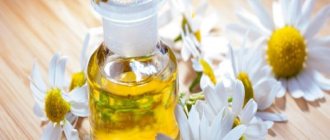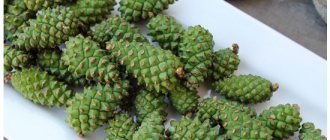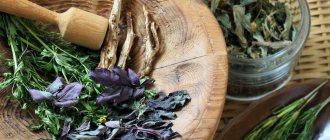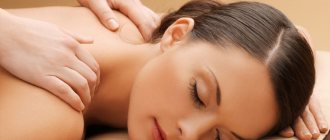www.bigstockphoto.com
During sleep, the body restores strength and internal reserves, rests and relaxes. Without proper sleep, it is impossible to maintain health, youth, a positive attitude, and performance. However, sound and deep sleep is a rare pleasure for many. The reasons are frequent stress, depression, anxiety, heavy workload, and the accelerated pace of modern life. If the sweet embrace of Morpheus is difficult to achieve or sleep is intermittent, shallow, filled with fears, nightmares, you should turn to a method proven over thousands of years - aromatherapy. Many essential oils for sleep are literally irreplaceable, as they gently and unobtrusively relax the nervous system, soothe, and relieve nervousness and irritability. In addition, natural remedies are safe, do not create addiction, and “work” delicately and naturally. Of course, you should choose plant esters that are characterized by the most powerful sedative, relaxing, and antidepressant effects.
The Best Essential Oils for Sleep
Aroma oils not only smell pleasant, but also have a scientifically proven effect on the psycho-emotional sphere:
- reduce anxiety levels;
- smooth out manifestations of nervousness, anxiety, irritability;
- relax the nervous system;
- normalize heart rate and blood pressure;
- restore emotional balance and set the mood for positivity.
The best anti-stress, calming and restorative aromatic oils have proven themselves to be lavender, chamomile, cedar, vetiver, lemon balm, ylang-ylang, and bergamot.
Lavender oil
Fragrant lavender oil is often recommended for meditation in Eastern spiritual practices. It has long been noted that it:
- promotes inner peace and harmony;
- relieves aggression, stress, irritability;
- “drives away” bad thoughts, feelings of envy, resentment;
- helps self-development and self-knowledge;
- reveals creative inclinations;
- enlightens the mind and senses.
From a scientific point of view, this effect is explained by the fact that the complex of bioactive substances of lavender oil normalizes the functions of the nervous and circulatory systems, hormonal levels, and stimulates the production of serotonin (“the hormone of happiness”). The sedative effect of lavender is due, among other things, to valeric acid, which is part of the ester, and is enhanced by the terpene mycene. The effectiveness of lavender oil in relation to mild forms of insomnia has been confirmed in practical studies.
It is noteworthy that lavender oil can provide not only relaxation and calm before bed, but also relieve headaches, clear the air of viruses and germs, and strengthen the immune system.
More details: Lavender Kingdom of Morpheus: Using Lavender Oil for Sleep
Lavender oil and favorite pillow
Lavender essential oil is light, fluid and colorless. It does not leave greasy marks on bed linen. If the previous recipes do not suit you, then apply a few drops of lavender oil to your favorite pillow. Before falling asleep, leave the sorrows and anxieties of the past day on a piece of paper. Read how to do this in the article Go to bed happy.
Warnings and contraindications when using essential oils
- Never ingest or apply undiluted essential oils to your skin without medical supervision.
- Check each scent for individual tolerance.
- Strictly follow dosages and instructions for use.
Share this article with your friends. Thank you!
Chamomile essential
In aromatherapy, this modest flower is nicknamed the keeper of dreams for its relaxing effect on the central nervous system. In addition, this is a “female” oil, invaluable for menopausal conditions, menstrual syndrome and neuroses associated with hormone imbalance.
Aromatizing the bedroom before resting (3-5 drops of chamomile oil in an aroma lamp) for 15-20 minutes will ensure deeper and longer sleep, completely restoring strength and vigor in the morning. This scent is good before important events and making difficult decisions, as it helps to discard unnecessary things, focus on the main thing, see prospects more clearly, and concentrate internal reserves.
Instead of an aroma lamp, chamomile can be used as part of a relaxing bath before bed: the water is not hot (37-39 degrees), soak the salt with 5-7 drops of sleep oil, dissolve in water, time - 15 minutes. In addition to relaxation, chamomile will cleanse and tone the skin, making it soft and silky.
If you don’t really like the green-herbaceous chamomile scent as a solo scent, it can be combined with bergamot, rose, lavender, and orange.
Vetiver oil
Translated from Hindi, vetiver ester means "oil of calm", which emphasizes its calming properties. In addition, vetiver relieves muscle tension and pain, activates metabolic processes, and has a beneficial effect on the musculoskeletal system. Therefore, a warm 20-minute bath with a few drops of vetiver oil (no more than 4) is “just what the doctor ordered” after a stressful, difficult day at work. A relaxing massage shortly before bed will also give an excellent result: 5 drops of vetiver per 15 ml of massage cream or any base oil.
By the way, when massaged with essential oil, its components enter the bloodstream within 5 minutes and reach maximum concentration after 20. After an hour and a half, the active essential ingredients are completely eliminated from the body. It would be a good idea to take this information into account when choosing the time of the procedure.
Vetiver oil has a complex effect on the emotional sphere:
- stabilizes and calms;
- eliminates depressive symptoms;
- helps cope with asthenic syndrome, panic attacks, uncertainty, depression;
- creates optimistic attitudes;
- improves mood;
- creates a positive attitude towards the environment.
Insomnia, chronic fatigue, depression, migraines, and self-doubt can be relieved if you wear an aroma pendant with a couple of drops of vetiver ether. The aroma of vetiver is considered “masculine”, so if you want to smooth out its pronounced woody-smoky notes, you can prepare an aroma mixture: vetiver (2 drops), tangerine (3 drops), rose (1 drop). This anti-stress blend is used in aroma stones, sachets, medallions, cold inhalations, and aroma lamps.
Types in which the plant is used
To improve your sleep quality, you can purchase ready-made essential oil or dried, fresh lavender sprigs.
Essential oil
Lavender ester is more effective in improving sleep than other aroma oils, since it has a more pronounced relaxing and calming effect.
It helps relieve tension, get rid of bad thoughts , stress, nervous excitement, which has a beneficial effect on falling asleep.
Entering the bloodstream through the skin or respiratory system, the oil's components stimulate areas of the brain that control the limbic system. As a result of this, the emotional background stabilizes, calmness, a positive attitude and tranquility sets in.
The main advantage of using lavender oil over pharmaceutical remedies for insomnia is its ability to quickly and easily reach anywhere in the body. This amazing penetrating ability is ensured by the presence of linalool in the ether, a compound that accelerates and improves the transport of related components through the skin.
However, the disadvantage of using oil is the possibility of overdose , which will lead to health problems.
Dried flowers and leaves
Dried lavender flowers have a calming effect on the nervous system, as well as the human respiratory system. Dried twigs and inflorescences are a favorite material used to fill aromatic pillows to improve sleep. The entire above-ground part of the plant can be used without any fear.
The advantage of using dried lavender is the ability to prepare it yourself, which saves money. However, this is a rather labor-intensive and time-consuming process.
Melissa oil
The use of lemon balm oil for sleep is indicated in cases where it is difficult to achieve complete relaxation. It normalizes heart rate and, in general, the functions of the cardiovascular and nervous systems, has a beneficial effect on brain function, and relieves emotional and physical stress. To relieve headaches and reduce tension, just drop one drop of ether on each temple and massage lightly for 5-10 minutes (if you are not allergic to this oil). For the same purpose, apply a cold compress to the forehead - a napkin soaked in water with a couple of drops of essential oil.
Melissa is one of the best adaptogens, so it is used for changes in life, important changes, and difficult situations. A fresh aroma activates internal reserves, strengthens defense mechanisms, smoothes out mood swings, and sets the mood for positivity.
Adding lemon balm oil to shower gels and shampoos (3-5 drops for every 15 ml of product) will help you relax after training, sports games, and swimming. You can also flavor tea (strictly if you are not allergic to lemon balm): 3 drops of oil per 200 g of herbal or tea mixture.
Ways to Use Essential Oils for Restful Sleep and Reduce Anxiety
Essential oils for sleep are used in three ways: through the sense of smell, topically, or orally. Aromatherapy is a simple and safe method for reducing overall stress levels. Inhaling aromas causes strong emotional reactions and affects brain function.
The number of olfactory cells located on the inner surface of the nasal passages is approximately 60 million. When molecules of an essential substance hit the receptors, a nerve impulse occurs and a sense of smell appears. Through impulses, information enters a specific area of the brain.
Essential oils act as stimulants of the nervous system and regulators of brain activity. A particular scent can affect heart rate, hormone production, regulate blood pressure, enhance concentration, or have a relaxing effect on the body.
Ylang-ylang oil
In Ayurveda, ylang-ylang ether is believed to bring joy and harmony between the mind and emotions. This well-known aphrodisiac is also good for normalizing sleep disorders of various kinds, as it has a calming effect on the nervous system, regulates the release of adrenaline, lowers muscle tone, regulates heart rate and breathing, and effectively relaxes.
If your sleep is interrupted, you often wake up at night and have difficulty falling asleep again, try aromatizing the air in the bedroom with a spray bottle with a few drops of ylang-ylang before resting, or placing an aroma with this scent at your head. A good mixture of ylang-ylang with lemongrass and lavender (2:2:3), it is used for atomizers and aroma lamps.
How to buy aromatherapy pillows
Users often transform their favorite pillows into aromatherapy pillows using inserts or essential oils.
The trick is to experiment with different pillows and scents until your sleep improves. There are many scents available at pharmacies and aromatherapy stores, including sandalwood essential oil, Bulgarian rose oil, and chamomile essential oil. Patients often choose to purchase essential oil kits and lots online or from local retailers. Purchasing essential oils as a kit gives the user a wide variety of oils to experiment with without investing a fortune in large bottles of each oil.
Cedar oil
Low energy and depression are often seasonal, appearing in late autumn and on the eve of spring. At the same time, the body is attacked by viruses and infections, colds and exacerbations of chronic ailments lie in wait. There is an essential oil that “kills” two birds with one stone – it normalizes sleep and the emotional sphere, and protects the immune system from dangerous microorganisms. This miracle cure is cedar oil.
Everyone has heard about its antiseptic properties and benefits for the respiratory system, but the fact that it is a good sedative and anti-stress drug is not so widely known. However, the beneficial effects of ether on the nervous system, brain and psycho-emotional state are undeniable. The fresh, woody aroma of cedar oil for sleep is good for use in an aromatherapy aroma, and this procedure, carried out in the bedroom before rest, will help restore the body's immune forces.
Cold inhalations with cedar ether are useful both at home and at work: a couple of drops on a handkerchief or napkin, inhale for several minutes throughout the day.
Orange scent for sleep
Orange Although. This scent is not very popular for easing insomnia when used in aromatherapy pillows. Orange is a suitable choice for certain types of insomnia.
Orange essential oils may also help with anxiety and depression. Some patients report better sleep due to less anxiety before bed when using orange essential oils. If anxiety is the main cause of the patient's insomnia, then orange is a suitable choice.
Bergamot oil
A strong natural antidepressant, bergamot oil is good primarily for eliminating symptoms such as constant fatigue, lack of interest in life, depression and despondency. Once in the body, volatile compounds of bergamot activate the release of dopamine and serotonin, which are “responsible” for the feeling of pleasure, calmness, and confidence.
Aromatherapy with bergamot looks like this: in the morning - a shower with gel and shampoo enriched with this ester (2-3 drops per single portion of the product), throughout the day - periodic cold inhalations (aroma sachet or medallion) and tea flavored with bergamot, and in the evening - a warm bath and aromatherapy session (3-5 drops in aroma lamp). You can supplement the therapy with aroma combing: apply a few drops to the teeth of a wooden comb, comb your hair for about five minutes in different directions. In the morning, this procedure will provide your hair with additional protection from damage and loss, and at night it will relax the body, strengthen the hair, make it stronger and thicker.
Aromatherapy methods
- Direct inhalation of essential oil
- Aromatize baths: apply 4-6 drops to shower gel or sea salt
- Aroma lamps: 3-5 drops per 15 m2
- Aroma pendants or medallions: 1-2 drops
- Adding a few drops to humidifiers
- Spraying indoors using a diffuser
- Adding to cosmetics, creams and lotions: 2-3 drops per 10 g.
- Adding to massage oil
Essential oils are so strong that they may cause redness and a burning sensation when applied to the skin. When applied topically, the essential oil is mixed with a carrier oil. For topical use, mix 2-5 drops of essential oil with 15-20 g. transport oil. These are olive oil, almond oil, avocado, coconut oil, jojoba. You can apply the mixture to the affected area, massage your feet and ears.
Essential oils for children
Increased activity and excitability, anxiety before performances or tests at school sometimes cause sleep disorders in children. What essential oils can be used for aromatherapy for children? First of all – citrus fruits. Tangerine, lemon, orange will muffle anxiety, calm you down, and give you confidence. For better sleep, the bedroom is scented with lavender, lemon balm, bergamot (the number of drops is half that for adults). It makes sense to add 2 drops of chamomile and 1 drop of lavender oils to the bath. The same blend is suitable for a massage procedure.
Contraindications for the use of essential oils include acute and chronic illnesses, individual sensitivity, and uncertainty about the high quality of the oil.
The safest esters for children are esters of lavender, rose, chamomile, and sandalwood. They relax, calm, promote balance and peace.
What essential oils can children of different ages use?
For babies under 3 months, you can use a limited number of aromatic oils, namely: lavender, myrrh, chamomile, fennel and rose. Gradually, as the child grows up, drugs such as bergamot, orange, sandalwood, and patchouli oil are added to this list. Stimulating pine and myrtle esters, namely fir and eucalyptus, should not be used before the child’s second birthday
In aromatherapy for schoolchildren, it is allowed to combine the same esters as in the treatment of adults, but the dosage should be half as much.
From 12-14 years of age (depending on the teenager’s build), oils are used in the same quantities as for adults.
Thus, odorous medicines can be used by children, but not all of them should be used with great caution. It is also advisable to consult with an aromatherapist or your child’s regular doctor before starting the session. Regardless of whether aromatherapy for little people has therapeutic or preventive purposes, the following proportions must be observed:
- from a month to 2: a drop of ether per 30 ml of cosmetic oil (basic); a drop on the baby's bath;
- 2-6 months: 2 drops of ether per 30 ml of base oil; 2 drops per baby’s bath;
- 6-12 months: 3 drops of ether per 30 ml of base oil; 3 drops per bath;
- 1-2 years: 5 drops of essential oil per 30 ml of essential oil; 5 drops per bath;
- 2-6 years: up to 8 drops of ether for the procedure.
How to use
Aroma lamp, aroma stone
Aromatizing a room using an aroma lamp or diffuser is the most traditional way of using essential oils. The standard rules for the procedure are simple: pour water into the lamp, add a few drops of oil (or aroma mixture), light a candle and enjoy the fragrance for 15-20 minutes. Of course, when using oil for sleep after an aroma session, activity, physical and emotional stress are excluded - it is better to do it immediately before going to bed.
An aroma stone affects a smaller space than an aroma lamp, so the algorithm for its use is slightly different: drop a few drops of ether on the stone and place it on the bedside table. There is no need to control the time - the ether itself will evaporate after an hour or two. The aroma stone produces a weaker, almost inaudible odor, so the effect may not be immediately noticeable.
Important! It is recommended to use one scent or mixture for no longer than 2 weeks, then you should change the oil to another.
Aromatic baths
After the aroma bath they do not wash or even dry themselves, so it is better to take a hygienic shower before it. And to make an aromatherapy bath, you need to first mix the selected oil or aroma composition with an emulsifier:
- honey;
- cream (yogurt, kefir);
- red wine;
- soak in salt (sea or regular table salt).
The main condition is a comfortable temperature: a bath that is too hot will not relax you, but on the contrary, it will excite you. Aromatic baths can be taken daily, every other day or once a week - as desired.
Massage with essential oils
Regular massage with oil (and even self-massage) gives miraculous results: muscles relax, thoughts and worries “evaporate” from the head, emotions are replaced by peace and tranquility. Adding essential oils to massage products greatly enhances the effect and promotes the rapid onset of deep and restful sleep.
Massage, in the absence of a specialist, can be done independently, kneading tense muscles, joints, head and face. But foot massage deserves special attention, because thousands of nerve endings connected to all organs and systems are concentrated there. It wouldn’t hurt to take a hot foot bath first to steam and relax your feet (5-6 drops of any relaxing oil in the water, time 10-15 minutes). Then walk on the massage mat or knead your feet with your hands: first, light stroking movements, then massaging in a circular motion with pressing on some points, then reducing the pressure in the reverse order.
Homemade recipe for a relaxing massage mixture:
- 15 ml of base (almond, apricot, peach or grape seed oil);
- 2-3 ml wheat germ oil;
- 3 drops each of ylang-ylang, chamomile and lavender esters.
It is better to store the mixture in the refrigerator and heat it before use.
How to use essential oils
You can use essential oils for good sleep in different ways: for massage, aroma lamp, relaxing bath. Choose the most suitable method for yourself that will help you achieve the best result. Let's look at each application option in more detail.
Massage
A massage before bed is an excellent way to relax and relieve stress accumulated during the day. A massage using aromatic vegetable oils is even more effective. You can ask a family member to give you this massage, or you can do it yourself.
Before the massage, it is advisable to take a shower or bath so that the active ingredients penetrate better into the pores of the skin. After an oil massage, try not to swim for at least 8 hours, as the active plant components continue to affect the body, healing it.
Prepare the massage mixture in advance. For this you will need a carrier oil. Peach, sesame, almond, corn, flaxseed, and olive oil are perfect for this purpose. You can take Johnson Baby cosmetic oil for children. It is designed specifically for children, so it has a delicate consistency and is quickly absorbed into the skin.
Take 10–15 ml of this base and drop a few drops of one or more aromatic oils into it. Shake well. Store the resulting mixture in a dark place, but no more than a week. Use massage oil every day. When the mixture runs out, you can prepare a new one. Here are some composition options:
- 3 drops chamomile + 2 drops geranium;
- 2 drops lavender + 1 drop basil + 1 drop orange;
- 1 drop myrrh + 3 drops juniper + 2 drops lavender;
- 3 drops ginger + 2 drops rosemary;
- 3 drops chamomile + 3 drops ylang-ylang + 3 drops lavender.
Apply a little prepared oil mixture to your palms and begin massaging. Using gentle movements and strokes, massage your face, earlobes, neck and shoulders. Don't press too hard on the skin. Movements should be calm and unhurried.
A foot massage helps to relax. Before going to bed, soak your feet in warm water. Start the massage from the tips of your toes, gradually moving to the central part of the foot and heel. Don't push too hard. There are a large number of biologically active points on the feet. With an intense massage, they are activated, and the result will not be relaxation, but, on the contrary, a surge of vigor.
After the massage you will feel pleasantly relaxed and tired. Now you can go to bed and fall asleep peacefully. From the first time you may not feel any special effect from the massage. Keep doing it every night and you will see results.
Bath
Another great way to relax is a bath with essential oils. Fill the bath with water. The water should not be hot. The optimal temperature is 38–40 °C. Add 4-6 drops of your chosen essential oil to the water. This is enough for an adult. Now immerse yourself in the bath. Try to relax during the procedure, take your mind off all your worries and worries. Soak in the bath for 20–30 minutes. Now slowly dry your body with a soft towel and go to bed.
Using an aroma lamp
Aromatizing a room with fragrant oils will help you tune in to a restful sleep, relieve nervous tension and relax. Pour water into a special aroma lamp, add a few drops of the selected oil or oil composition and light a candle in the aroma lamp. The aroma lamp can be purchased at a souvenir or esoteric goods store.
The smell should be light and unobtrusive, otherwise the effect will be the opposite. Therefore, do not add too much oil to the aroma lamp. Three to four drops will be enough. The first sessions of aromatizing a room should not exceed 20 minutes. When you get used to the smell and make sure that it has a beneficial effect on you and improves your sleep, you can increase the aromatization time to 2-3 hours.
If you don’t have an aroma lamp, you can do without it. Pour half a glass of hot water, add a few drops of oil and place the glass near the bed. In winter, you can moisten a small towel with water, drop a little aroma on it and place it on a warm radiator. The fabric will heat up and spread the smell throughout the room. Another option is to put a drop of oil on a handkerchief and place it next to you on the pillow.











